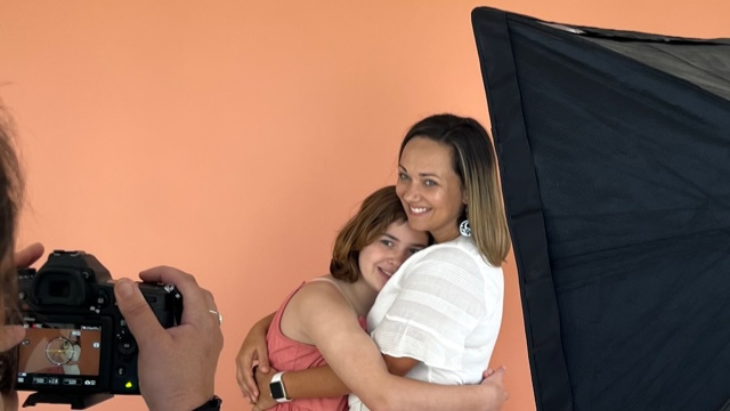
Every parent hopes their child enjoys a life of opportunities, inclusion and hope. This is no different for a parent of an Autistic child. What are some of the challenges they face? What are the rewards? What do they want you to know about their child?
We asked Sydney mum and high school teacher Sandy Golder, whose daughter Imogen was diagnosed with autism in 2013, at two and a half years of age. Imogen also has ADHD and anxiety.
What gave you an inkling that Imogen had a disability?
Actually, it was my mum who suggested I seek professional advice. Imogen was slow to speak, but my son (Imogen's older sibling, who is not Autistic) had been as well, so I wasn't particularly worried. But when we went to the paediatrician and started filling out the diagnosis checklists, I was aware of how many characteristics matched Imogen's behaviour and ability. This included her playing alongside children, rather than having direct interactions with them.

How long did it take for Imogen to be diagnosed with autism, and what was your reaction?
It took about six months for her to be diagnosed. I understand it takes much longer these days, from a year to 18 months, particularly if you're relying on the public health system. I'd been diagnosed with multiple sclerosis just months before Imogen's diagnosis, so had already spent time grieving the life I thought I would have. By the time Imogen was diagnosed, I went straight into action-mode. I didn't know anything about autism, yet it felt empowering to have a diagnosis and a pathway to help her.
What have been the challenges in getting the right support for Imogen?
The early intervention stage (specialised support provided for young children who have a disability and their families) was really overwhelming for Imogen. Her speech therapy sessions would run for an hour and Imogen would cry the entire time. In hindsight, we should have stopped persisting and waited until she was more capable of taking the therapy in. Learning about new strategies and support never stops. A huge breakthrough for us came when we realised that Imogen learnt through visual communication. I would regularly ask Imogen to come for a bath, yet she didn't respond. One day, I showed her a picture of a bath and she immediately took herself into the bathroom. It was such an epiphany for Imogen and the whole family. We were finally speaking the same language!
What have been the ways that helping Imogen navigate her life as an Autistic person, seen you and your family grow and thrive?
Being Imogen's mum has made me a better human. I'm much more compassionate and non-judgemental. Imogen has taught me the importance of non-verbal communication, in a world that focuses on the verbal. All behaviour is communication! It's made me a much better teacher, particularly for children with ADHD. I have a better understanding of how their overdeveloped impulse reaction and underdeveloped filter can result in behaviour that would otherwise just be seen as 'naughty'. Living with a child with a disability makes you value the small wins and moments. They are huge in our world! My son is becoming so compassionate and understanding as he grows up, and I have no doubt this is because of Imogen.
What do you wish people knew about Imogen?
I really wish people understood that Imogen, like many Autistic people, craves social connection. But she lives in a world that is not set up to fully accept or include her. Imogen goes to a specialist Autism school, which is meeting her needs. But it would be wonderful if our local primary school had the resources to support her. It would benefit Imogen to spend more time with her neurotypical peers. It would help her Neurotypical peers to spend more time with Imogen and other autistic children. They would learn from each other.
Sandy has joined forces with other passionate parents, and created the Kindship app. It's a space for connection for parents raising children with disabilities, delays and neurodiversity. Once parents set up their Kindship profile, they're quickly connected to people and information that matches their needs.
For more information about sensory-friendly events, activities and support around Sydney, see the new ellaslist Sensory-Friendly section.
More Great Reads
Autism MATES Is Empowering The Australian Autistic Community
Celebrate Difference at the LOTS (Living On The Spectrum) Family Gala Day
Weighted Blankets for Kids
Have you signed up for our newsletter? Join ellaslist to get the best family and kid-friendly events, venues, classes and things to do NEAR YOU!
Reviews



 Pick a Date
Pick a Date


